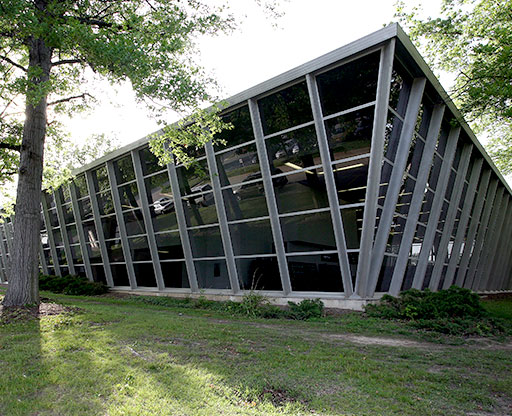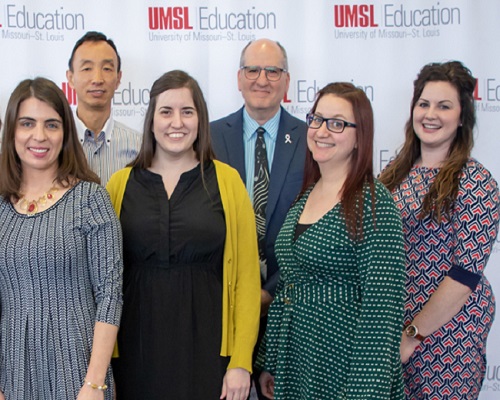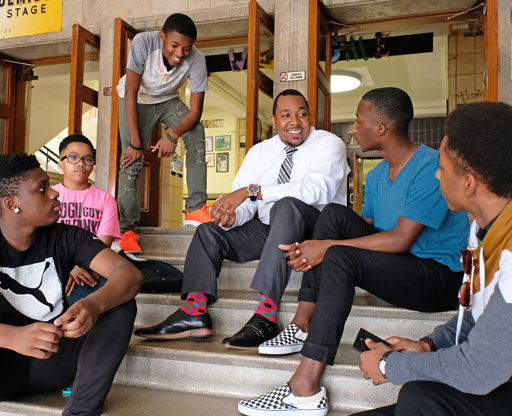Make a lasting difference through clinical mental health counseling at UMSL
Prepare to make a positive impact in a variety of settings through the clinical mental health counseling program at UMSL.
Our MEd degree in counseling with an emphasis in clinical mental health counseling prepares professional counselors to meet the mental health needs of culturally diverse individuals, groups, couples and families.
This graduate-level counseling degree program will also help you gain the credentials you need to become a Missouri Licensed Professional Counselor and a National Certified Counselor.
A clinical mental health counseling degree program you can tailor to your goals
When you earn your MEd degree at UMSL, not only will you pursue a rigorous course of study in clinical mental health counseling, but you also have the option to choose a host of electives, as well as a concentration to align your studies with your interests and goals.
Some elective areas of study include:
- Addictions
- Counseling African American Clients
- Counseling Individuals with Disabilities
- Counseling Women Toward Empowerment
- Integrating Religion and Spirituality in Counseling
- Multicultural Counseling
- Sexual Orientation and Gender Diversity in Counseling
Concentration tracks include:
- Career Counseling
- Child and Adolescent Counseling
- Couple, Marriage and Family Counseling
- Multicultural and Social Justice
The College of Education counseling programs hold advanced accreditation by the Council on Accreditation of Counseling and Related Educational Programs. View the 2023 CACREP report.
Program type:
Graduate, MEd
Format:
On-Campus
Take the next step
Request more information below:

Why earn your clinical mental health counseling degree at UMSL?
At UMSL, our College of Education counseling programs hold advanced accreditation by the Council for the Accreditation of Counseling and Related Educational Programs. We also have a strong commitment to social justice woven throughout our coursework and program activities for this counseling degree and others. At UMSL, you’ll also find:
- Faculty committed to social justice training and scholarly activities. Learn from instructors who are actively researching resilience in under-represented populations, identity development and more.
- Experiential learning opportunities. On your path to becoming a state-licensed or National Certified Counselor, you will develop and hone your skills in our Counseling and Social Advocacy Center training facility, and complete internships in numerous settings.
- Flexibility. Take as many courses as you wish for your MEd counseling degree.
What can you do with an MEd in clinical mental health counseling?
Our clinical mental health counseling degree graduates find success through counseling jobs in a broad range of settings, including community agencies, hospitals, private practices, university counseling centers, substance abuse facilities and the correctional system.
In fact, a 2023 survey of employers showed that our students were viewed as very well prepared in multiple areas, including counseling skills, ethics, understanding and appreciation of diversity, assessment and the use of trauma-informed approaches.
About 86 percent of our graduates pass the licensure exam before graduating and 95 percent find employment in the field, while others pursue Ph.D. programs in counseling or related fields.
When you complete your MEd degree in clinical mental health counseling at UMSL, you will be able to:
- Apply relationship skills to establish therapeutic alliances and achieve counseling goals in diverse settings.
- Utilize ethical standards for counseling to make decisions and guide professional practice.
- Assess client status and goals and identify interventions based on research and best practices.
- Identify and apply appropriate theories to conceptualize cases and inform counseling practice.
- Articulate the intersections of mental health and career needs.
- Use developmentally appropriate, trauma-informed approaches to address the needs of clients and systems.
The need for professional and National Certified Counselors is only expected to grow. For example, employment of school and career counselors and advisors is projected to grow 10 percent through 2031 — with a median annual salary of $60,510 — according to wage and employment data from the U.S. Bureau of Labor Statistics.
60,510
10
Career Opportunities
- Career Counselor
- Community Counselor
- Family Counselor
- Mental Health Counselor
- Play Therapist
- Substance Abuse Counselor
Admissions requirements include an earned baccalaureate degree from an accredited college or university with an overall grade point average of 3.0 or higher, a completed UMSL Graduate School Application, official transcripts from all colleges and universities attended, have two completed references on file, complete the supplemental application and upon admission will take CNS ED 6010, Theories of Counseling, in their first semester.
Application Deadlines
Admissions are conducted twice a year, with application deadlines on March 1 and October 1 for the fall and spring semesters, respectively.
Download Program RequirementsPlan of study
Review Full Degree RequirementsNon-Missouri Residents: Prospective students are responsible for reviewing the NC-SARA state authorizations page to see if this program is offered in their state throughout their program and to review the licensure or certification requirements for the state in which they reside.
Student Organizations - Make new friends and learn new skills by joining one of our Recognized Student Organizations.
Career Services – Students have access to professional career counselors who can assist in everything from resume development and interview preparation to lining up an internship or connecting you with your next fulltime career. UMSL alumni also enjoy high quality, lifelong career management programming, services, events and resources to assist in all phases of career development.
Networking – with the largest alumni network in the region, UMSL graduate students have access to leading professionals engaged in business, research, entrepreneurship, non-profit, government, community organizations. Our academic units engage this network in curriculum development to ensure our graduate students gain the skills needed to advance along their choose career path.
Research – There are many opportunities for graduate students to showcase their research including our annual Graduate Research Fair, which is open to students from all graduate programs. Doctoral and thesis master’s students can also compete in the Three Minute Thesis challenge to be evaluated by a panel of judges for a chance to win cash prizes.








